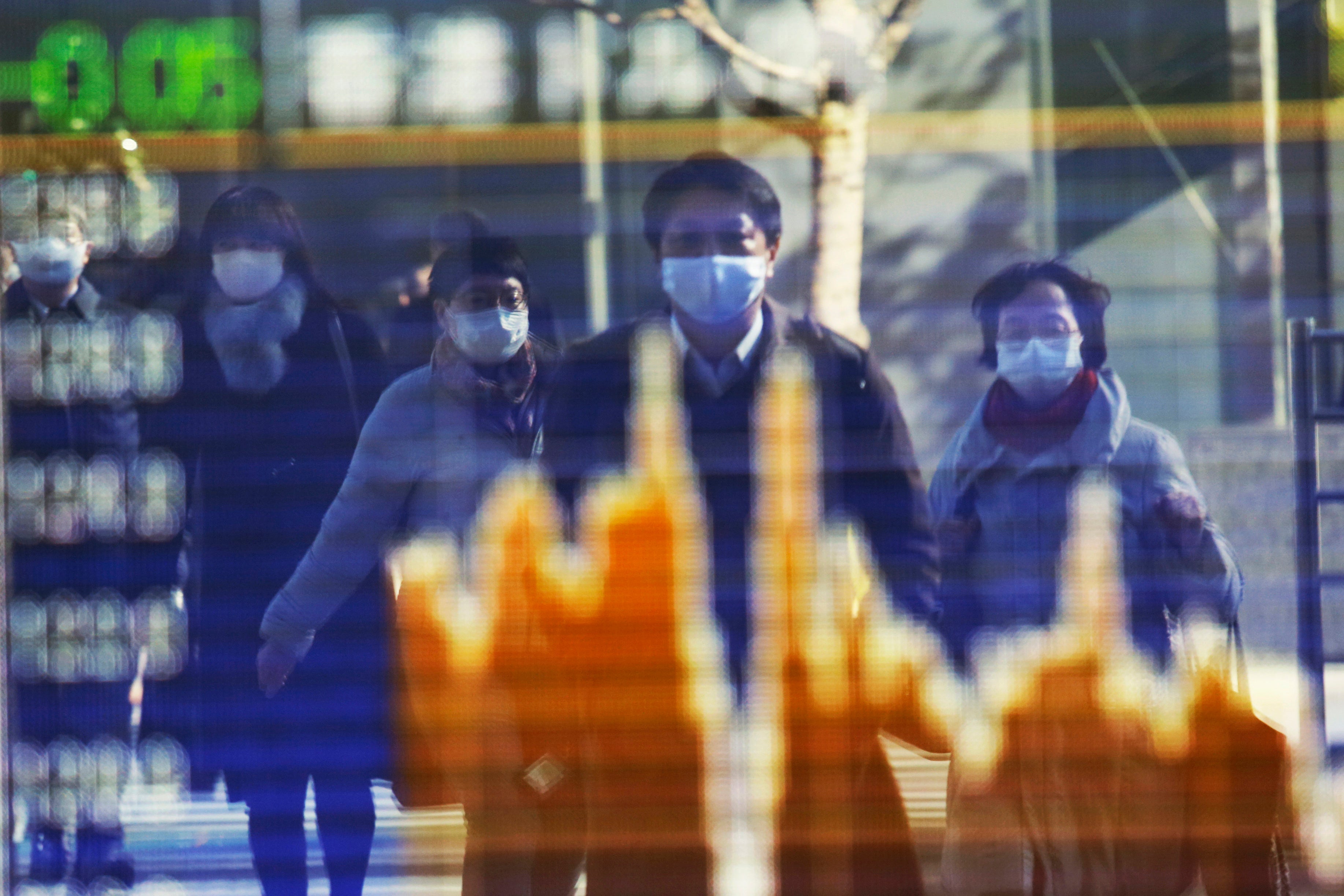Asian shares climb on hopes US finally to get more stimulus
Asian shares have advanced on hopes the U.S. Congress may finally deliver fresh aid to help businesses and families weather the pandemic

Your support helps us to tell the story
From reproductive rights to climate change to Big Tech, The Independent is on the ground when the story is developing. Whether it's investigating the financials of Elon Musk's pro-Trump PAC or producing our latest documentary, 'The A Word', which shines a light on the American women fighting for reproductive rights, we know how important it is to parse out the facts from the messaging.
At such a critical moment in US history, we need reporters on the ground. Your donation allows us to keep sending journalists to speak to both sides of the story.
The Independent is trusted by Americans across the entire political spectrum. And unlike many other quality news outlets, we choose not to lock Americans out of our reporting and analysis with paywalls. We believe quality journalism should be available to everyone, paid for by those who can afford it.
Your support makes all the difference.Shares were mostly higher in Asia on Thursday, buoyed by hopes the U.S. Congress may finally deliver fresh aid to help American businesses and families weather the pandemic
Benchmarks rose in Tokyo Hong Kong and Shanghai but fell in South Korea.
Overnight, the S&P 500 edged close to a record after the Federal Reserve pledged to keep buying bonds until the economy makes substantial progress from its virus-wracked state.
Congressional leaders appeared late Wednesday to be on the brink of a COVID-19 economic aid package that would extend help to individuals and businesses and ship coronavirus vaccines to millions.
Negotiators were working on a $900 billion package that would revive subsidies for businesses hit hard by the pandemic, help distribute new vaccines, fund schools and renew soon-to-expire jobless benefits. They’re also looking to include new direct payments of about $600 to most Americans.
Help for the U.S. economy is seen as crucial for the global economy and the many exporters that rely on American demand to keep their own factories running.
But optimism over a possible deal after many false starts has been tempered with concern over a resurgence of coronavirus cases in many Asian regions at a time when the rollout of vaccinations has barely begun.
In Japan, Tokyo reported 822 new cases of the coronavirus, a new high for the Japanese capital and a sharp increase from its previous record the day before, as the country struggles with a latest wave of resurgence nationwide.
Infections have been on the steady climb nationwide for several weeks and experts raised caution levels for the city's medical systems to highest on their scale of four.
Still, the Nikkei 225 index gained 0.2% to 26,806.67, while in Hong Kong, the Hang Seng index rose 0.6% to 26,610.58. Australia's S&P/ASX 200 jumped 1.2% to 6,756.70 and the Shanghai Composite index added 1.1% to 3,404.87.
South Korea's Kospi lost 0.1% to 2,770.43. Shares also fell in Singapore and Taiwan but rose in other regional markets.
The S&P 500 rose 0.2% to 3,701.17 on Wednesday, about 1 point off its record set last week. The Dow Jones Industrial Average slipped 0.1% to 30,154.54 and the Nasdaq composite rose 0.5% to 12,658.19, setting a record for the second straight day.
Massive efforts by the Fed have helped underpin the market since the spring, and the central bank said Wednesday that it will buy at least $80 billion in Treasurys each month and $40 billion in agency mortgage-backed securities until “substantial further progress” has been made. It also said again that it would keep short-term interest rates at their record low of nearly zero, as it keeps the accelerator floored on its support for the economy.
Economists, investors and even Fed officials have been saying more support is crucial, because the Fed's tools alone can help the economy only so much. The lower interest rates ushered in by the Fed can help goose home prices and stocks on Wall Street, for example, but they can't replace the paychecks lost by workers whose businesses have shut because of the pandemic.
A report released Wednesday morning showed that retail sales sank 1.1% last month, the second straight month of weakness and a much worse showing than the 0.3% decline that economists expected.
Restaurants posted sharp declines in sales, and the numbers may get only worse as deep winter sets in, discouraging the outdoor dining that is the only option for many communities.
Governments around the country and world are bringing back varying degrees of restrictions on businesses to slow the spread of the virus. Even without lockdowns, the rising death toll of the pandemic is scaring customers away from businesses and normal economic activity.
If Congress can indeed reach a deal, it could help carry the economy through what's expected to be a bleak winter, before one or more coronavirus vaccines can help the economy get closer to normal next year.
In the bond market, Treasury yields initially climbed following the Fed's afternoon announcement, but they quickly receded. The yield on the 10-year Treasury rose to 0.92% from 0.91% late Tuesday. It was at 0.94% shortly after the Fed's announcement.
Bitcoin, the world's largest cryptocurrency, topped $20,000 for the first time. It was trading up 7.1% at 22,405.00 on the Chicago Mercantile Exchange.
U.S. benchmark crude oil gained 72 cents to $48.54 per barrel in electronic trading on the New York Mercantile Exchange. It picked up 20 cents to $47.82 per barrel on Wednesday. Brent crude, the international standard, climbed 73 cents to $51.81 per barrel.
The dollar weakened to 103.22 Japanese yen from 103.47 yen. The euro rose to $1.2237 from $1.2199.
___
Associated Press writer Mari Yamaguchi and AP Business Writers Stan Choe and Damian J. Troise contributed.